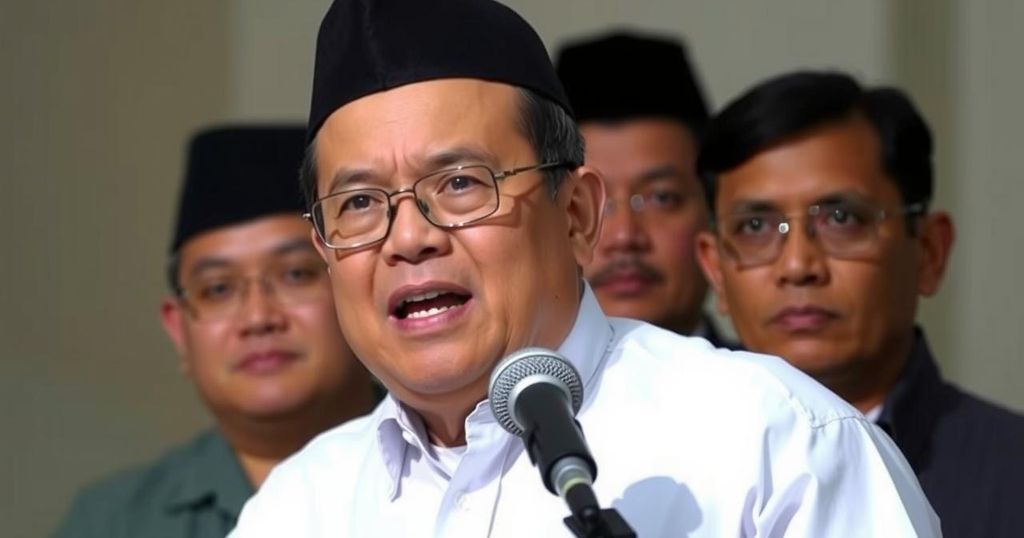President Prabowo Subianto’s plan to pardon corrupt individuals who return stolen assets has been criticized by Lakso Anindito, who warns that this could lead to more corruption. Anindito argues that amnesty would compromise deterrents against corrupt practices and suggested that the president focus on stricter enforcement of asset recovery laws. Prabowo’s controversial proposal was presented during a speech in Cairo, aiming to provide corruptors with a chance to repent without public exposure.
President Prabowo Subianto’s proposal to pardon corrupt individuals who return stolen assets has faced significant criticism, particularly from Lakso Anindito, Chairman of the Indonesia Memanggil 57+ Institute (IM57+). Anindito argues that such a plan would diminish the deterrent factors against corruption, ultimately increasing the likelihood of corrupt practices. “This would not reduce, but rather increase the potential for corruption,” he stated, warning that forgiving past corrupt actions would fail to tackle the underlying issues contributing to corruption. Instead of amnesty, Anindito recommended Prabowo intensify asset recovery efforts through existing laws and safeguard the independence of law enforcement to enhance anti-corruption measures.
President Prabowo’s remarks, given at Al-Azhar University in Cairo, expressed a desire to provide a path for corrupt individuals to atone by returning the proceeds of their crimes without facing public exposure. He stated, “We want to give corrupt individuals a chance to return the proceeds of their crimes, in exchange for which their identities won’t be exposed,” signifying a lenient approach toward offenders. While the president’s intention may stem from a desire for national reconciliation, critiques emphasize the need for more robust strategies to address corruption holistically rather than selectively exempting wrongdoers.
Corruption remains a pervasive issue in many nations, including Indonesia. The proposal to offer pardons to those who return stolen assets ignites intense debate regarding its efficacy in reducing crime. Critics argue that such moves undermine judicial integrity and provide no true remedy for the systemic issues enabling corruption. By examining the repercussions of previous attempts at leniency, such as reduced sentences or re-entry incentives for offenders, it becomes evident that this cycle may perpetuate corruption rather than deter it. Heightened asset recovery efforts and strict enforcement could foster a more legitimate approach to tackling this longstanding problem.
In summary, President Prabowo Subianto’s proposed pardon for corrupt individuals has drawn skepticism regarding its potential to exacerbate corruption rates in Indonesia. Critics like Lakso Anindito assert that forgiving corruptors may erode the deterrent effect essential for combating such crimes. Instead of amnesty, a stronger focus on comprehensive enforcement and recovery mechanisms is essential to rectifying the corruption dilemma. As discussions continue, it is imperative to consider the broader implications of such leniency on societal standards of accountability and justice.
Original Source: en.tempo.co







